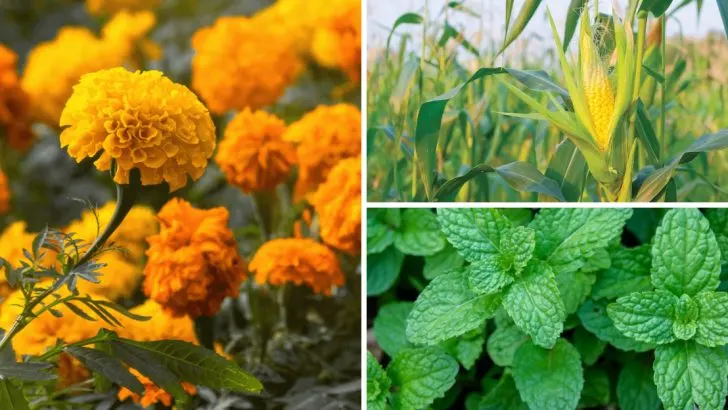When it comes to growing squash, the company it keeps can make all the difference. Companion planting is one of those gardening strategies that can really boost your crops—some plants just get along better than others. Whether it’s improving flavor, deterring pests, or enhancing growth, knowing which plants to pair with your squash can help you grow healthier and more abundant harvests. On the flip side, some plants just don’t mix well with squash and can even compete for space or nutrients.
In this guide, we’ll take a look at the best and worst companion plants for squash. By learning which plants are the most beneficial, and which ones to avoid, you’ll set yourself up for a much smoother gardening experience. It’s all about creating a balance that encourages healthy growth while keeping pests at bay—so your squash will thrive, not just survive.
Nasturtiums
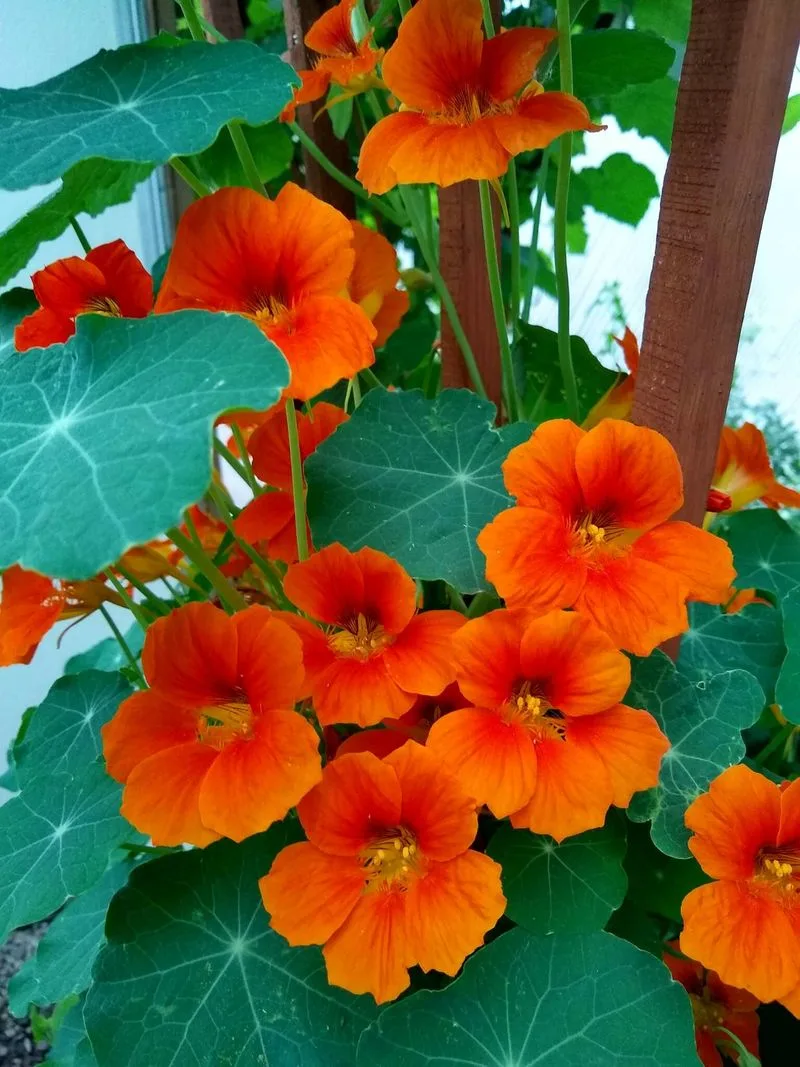
Nasturtiums are a fantastic companion for squash, bringing both beauty and practicality. These flowers attract pollinators with their bright blooms, while also acting as a trap crop for aphids.
This means aphids are more likely to target nasturtiums, sparing your squash. Additionally, nasturtiums can deter squash vine borers, a common pest for squash plants.
Planting nasturtiums nearby not only adds a splash of color to your garden but provides natural pest control. Their edible flowers and leaves can also be a delightful addition to salads, making them a versatile choice for gardeners.
Fennel
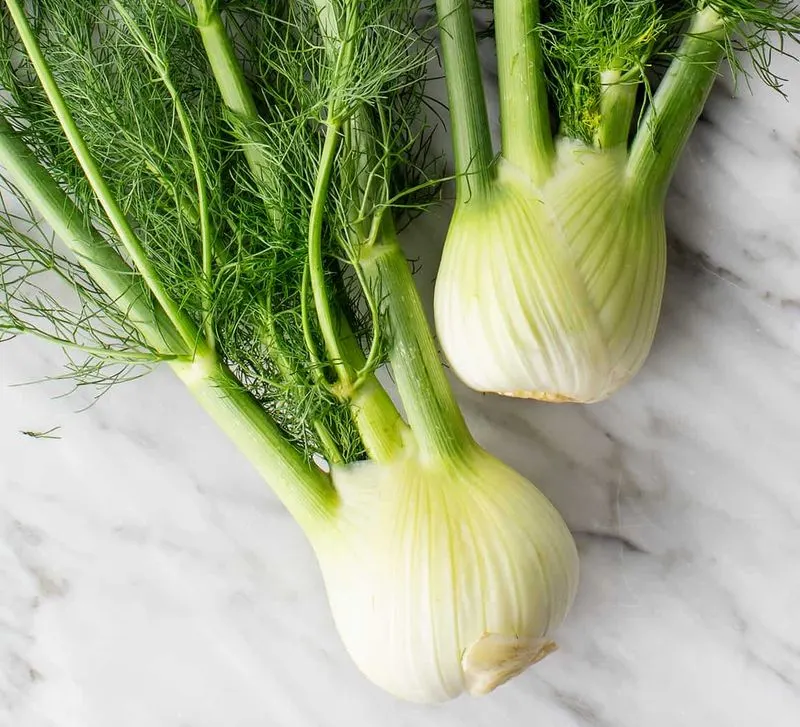
Fennel, despite its many culinary uses, is a poor companion for squash. It secretes a chemical that can inhibit the growth of surrounding plants, including squash.
This allelopathic behavior can lead to reduced yields and stunted growth. In addition to competing for nutrients, fennel can attract pests that are harmful to squash.
Therefore, it’s best to plant fennel at a distance from your squash to avoid these issues. While fennel can be a striking addition to a garden, its placement should be carefully considered to ensure it doesn’t hinder the growth of nearby vegetables.
Radishes
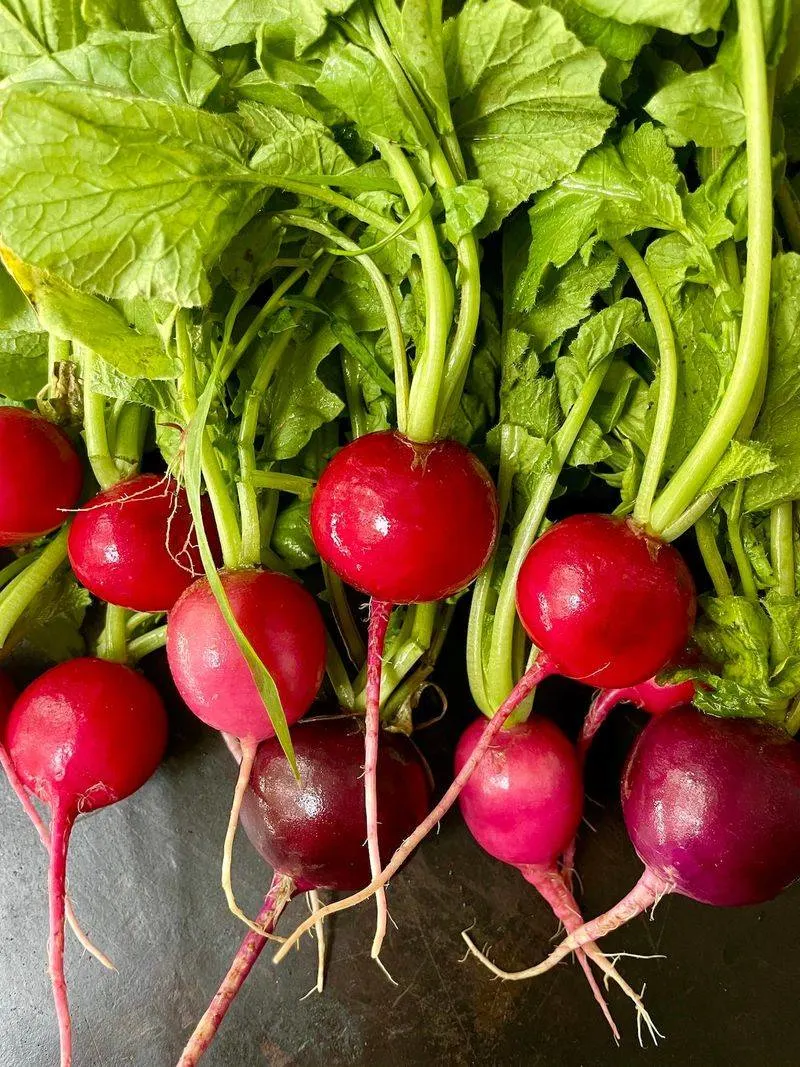
Radishes are a classic companion plant for squash. Known for their ability to deter pests like cucumber beetles, they offer a natural form of pest control.
Their quick growth helps in early detection of potential pest issues in your garden. Radishes also improve soil structure, making it easier for squash roots to penetrate and grow.
Incorporating radishes into your squash bed adds biodiversity, which in turn supports healthy plant growth. Plus, their peppery flavor is a delightful contrast when harvested and added to salads alongside fresh squash.
Marigolds
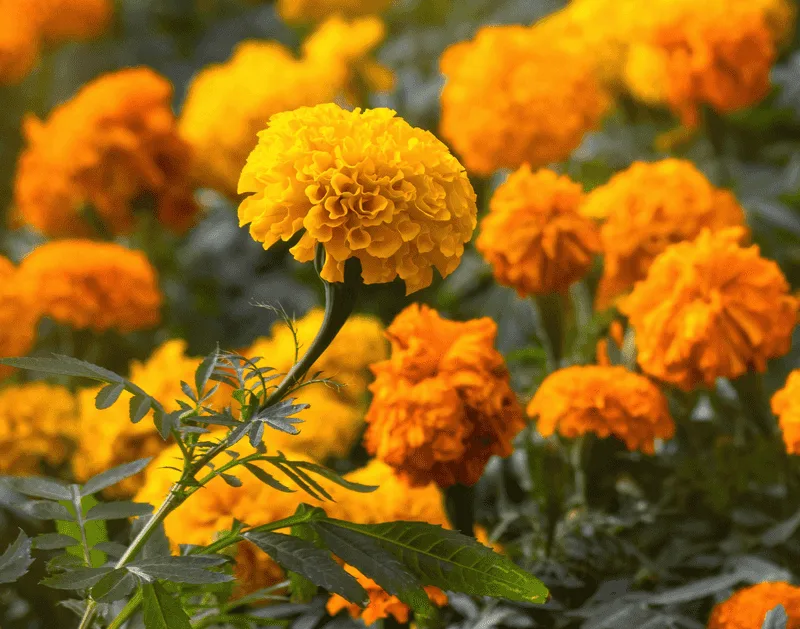
Marigolds are an excellent choice for companion planting with squash. These cheerful flowers are known for their strong scent that repels many common garden pests, including nematodes.
Marigolds also attract beneficial insects such as ladybugs and bees, which can help pollinate your squash flowers.
Planting marigolds creates a vibrant and protective barrier around your squash plants. The vivid blooms also provide an aesthetic appeal, making your garden both practical and visually pleasing.
Enjoy the beauty and functionality of marigolds in your squash garden.
Mint
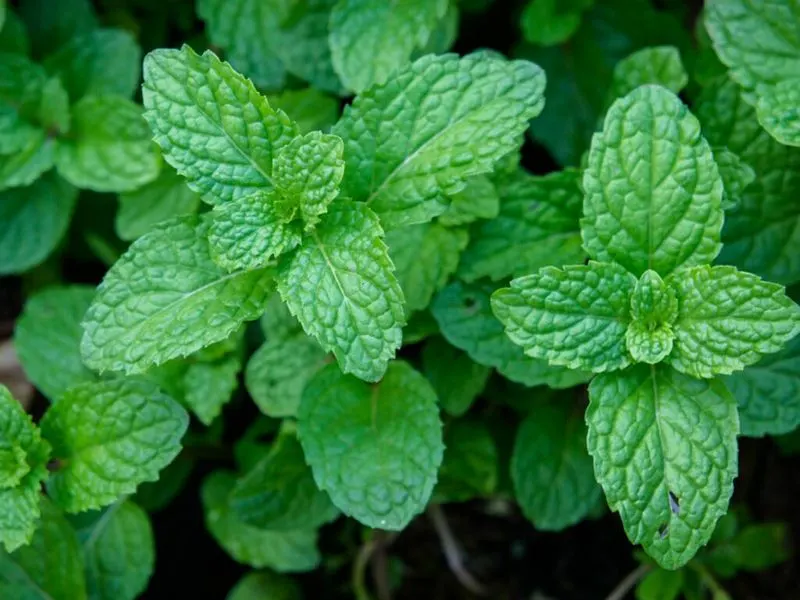
Mint may seem like an unusual choice, but it’s an effective companion plant for squash. Its strong aroma confuses pests, deterring them from your squash plants.
Mint’s rapid growth can also help cover ground, reducing weeds that compete for nutrients.
However, be cautious as mint can become invasive. Plant it in containers near your squash to control its spread.
The refreshing scent of mint not only protects but also adds a pleasant aroma to your garden, creating a delightful growing environment.
Catnip
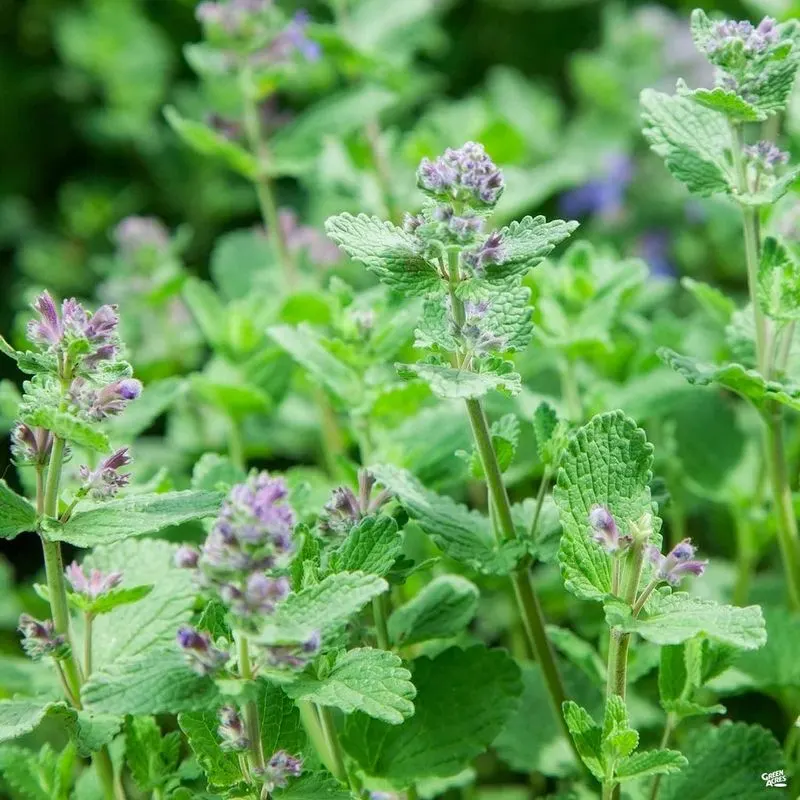
Catnip is not just for cats; it’s a beneficial companion for squash plants. Known to repel squash bugs and flea beetles, catnip acts as a natural pest deterrent.
It also attracts pollinators like bees, which are essential for the squash’s flowering and fruiting process.
Growing catnip nearby not only protects your squash but also provides a relaxing aroma that garden visitors would appreciate. Keep in mind that cats might be drawn to the area, adding an unexpected element of entertainment to your gardening experience.
Garlic
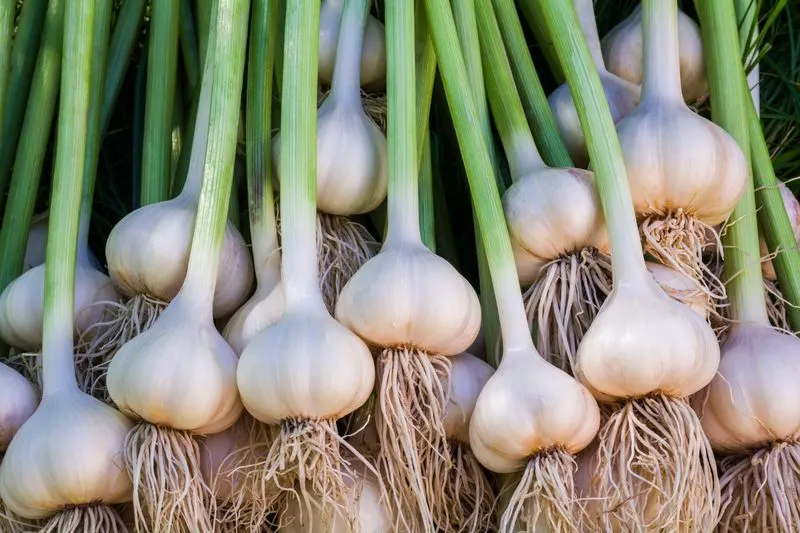
Garlic is celebrated for its pest-repelling properties, making it a valuable ally for squash. Its pungent scent deters aphids, spider mites, and beetles.
Garlic also enriches the soil with sulfur, promoting healthy growth in squash plants.
In addition to its protective benefits, garlic is easy to grow and requires minimal maintenance. Planting garlic alongside your squash can lead to a healthier, more productive garden.
Enjoy the benefits of these natural allies as they work in harmony to improve your gardening experience.
Corn

Corn and squash are traditional companions, often planted together in the Three Sisters method. Corn provides natural support for squash vines, allowing them to climb and spread.
This partnership maximizes space and offers shade to the squash, helping to retain soil moisture.
Growing corn alongside squash can enhance photosynthesis by creating a microclimate that supports both plants. This classic combination also enriches the soil, improving nutrient availability for both plants.
Embrace this age-old technique to create a thriving garden ecosystem.
Lavender
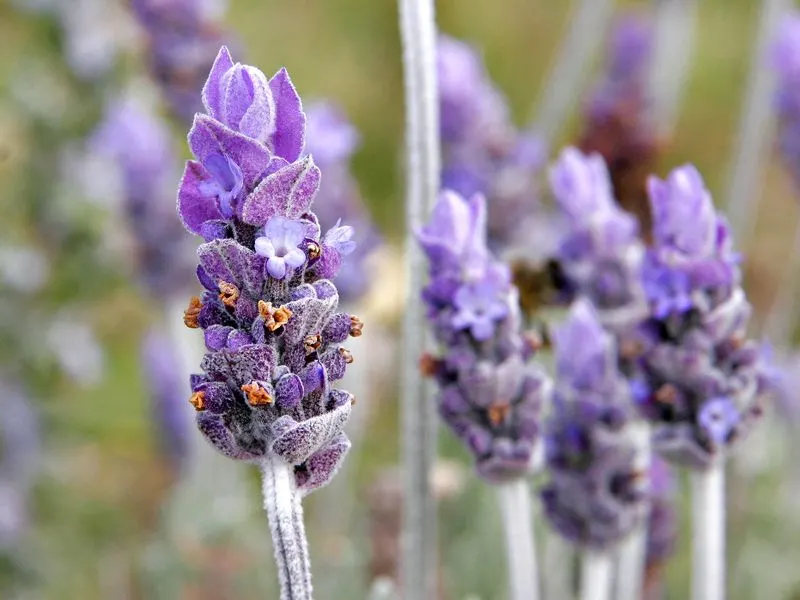
Lavender’s calming aroma does more than just soothe humans; it also wards off pests like fleas and ticks that could harm your squash plants. Its vibrant purple flowers attract beneficial pollinators, enhancing the growth and yield of your squash.
Lavender requires well-drained soil and full sun, similar to squash, making them compatible companions. Planting lavender in your squash garden not only protects but also introduces a sense of tranquility and beauty.
Enjoy the delightful fragrance and vibrant color it brings to your gardening space.
Sunflowers
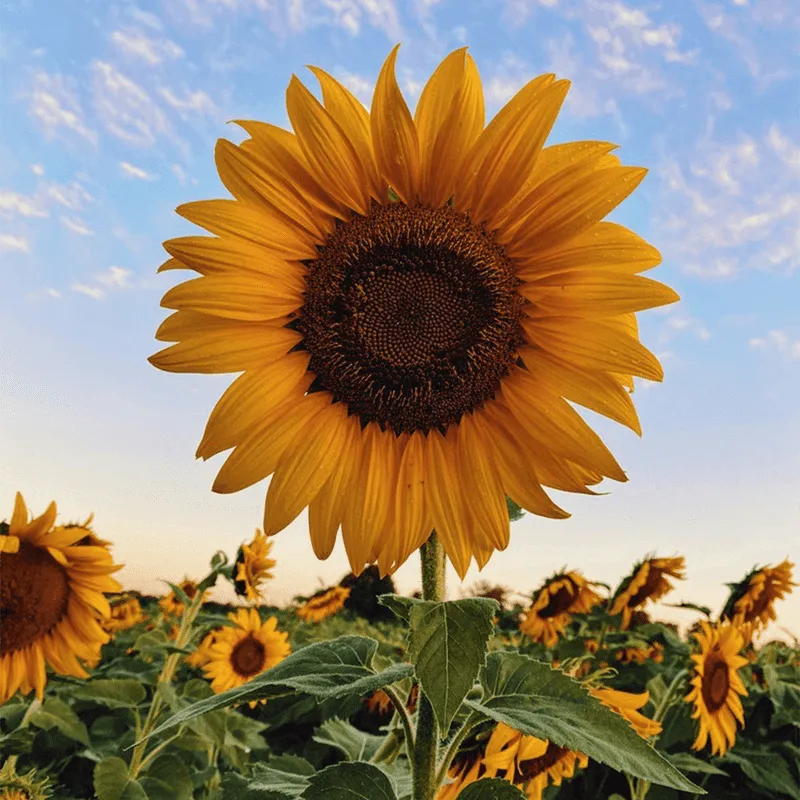
Sunflowers are not just pretty faces; they offer practical benefits as companions for squash. Their height provides shade, which can help keep squash plants cool during hot days.
Sunflowers also attract pollinators, essential for the reproduction of squash flowers.
The roots of sunflowers improve soil structure, enhancing water retention and nutrient absorption for your squash. Their towering presence adds vertical interest to your garden, creating a dynamic visual landscape.
Embrace the beauty and utility of sunflowers in your companion planting strategy.
Yarrow
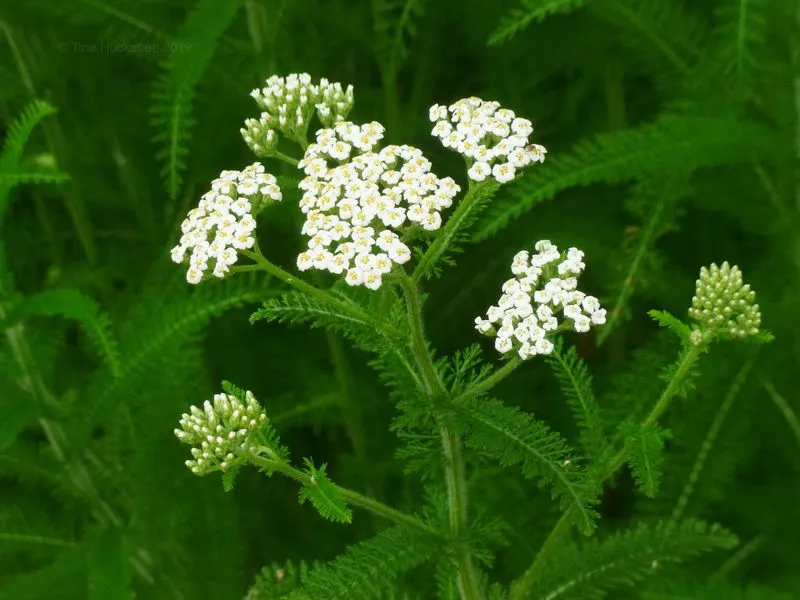
Yarrow is a beneficial companion plant that aids squash by attracting beneficial insects like ladybugs and parasitic wasps. These insects help control aphid populations, which can be detrimental to squash plants.
Yarrow’s hardy nature makes it easy to grow alongside squash.
It also improves soil quality by adding nutrients, benefiting squash plants. The feathery leaves and delicate blooms of yarrow add an aesthetic appeal to your garden.
This plant supports a healthy ecosystem and enhances the resilience of your squash plants against pests.
Beans
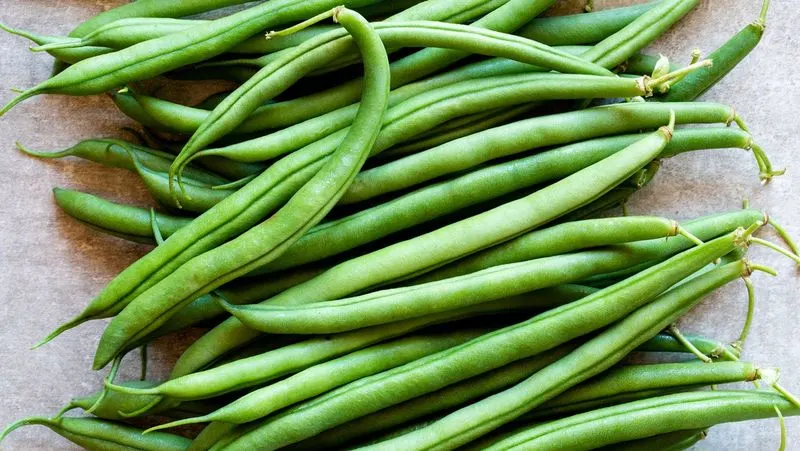
Beans are excellent companions for squash due to their nitrogen-fixing abilities, enriching the soil and promoting healthy growth. The symbiotic relationship between beans and squash benefits both, with beans providing nutrients and squash offering support.
This partnership improves soil fertility, leading to more robust squash plants. Beans also attract pollinators, facilitating the flowering and fruiting process of squash.
The intertwining of bean vines with squash creates a visually appealing and productive garden setup, showcasing the harmony of companion planting.
Borage
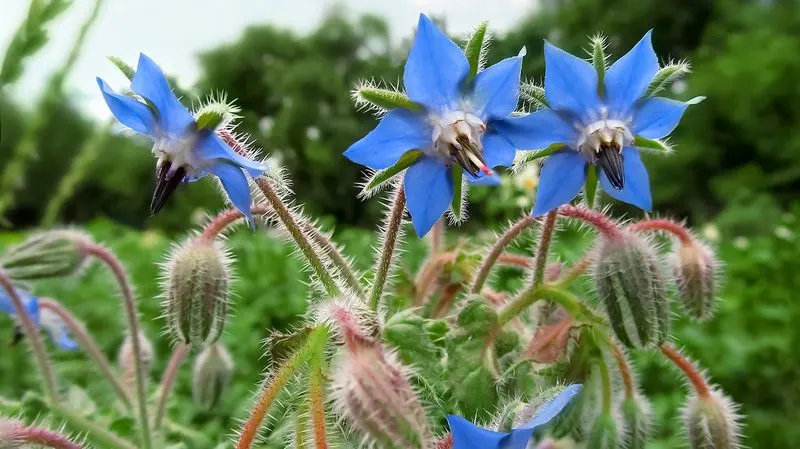
Borage is a remarkable companion plant for squash, attracting pollinators like bees and enhancing the growth of neighboring plants. Its starry blue flowers add beauty and function to your garden.
Borage also improves soil quality by adding trace minerals, benefiting squash.
The plant is known to deter tomato hornworms and cabbage worms, providing pest protection for your squash. Its leaves are edible and can be used in salads, adding variety to your harvest.
Embrace borage in your garden for its benefits and ornamental appeal.
Dill
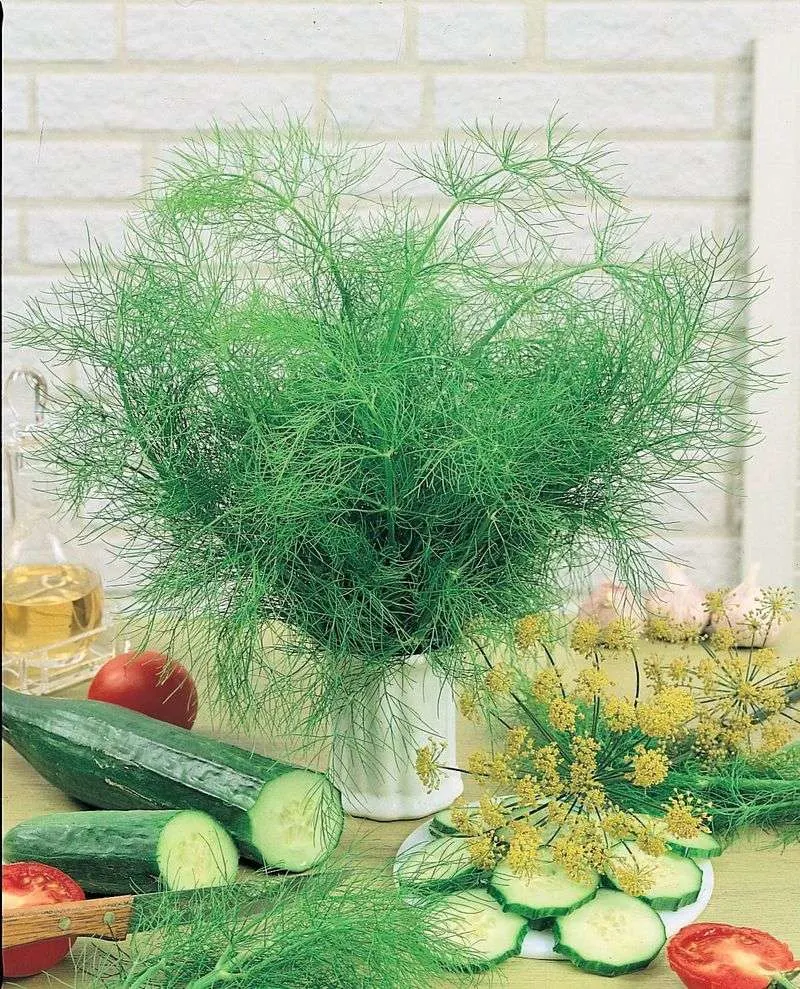
Dill serves as a beneficial companion plant for squash by attracting essential pollinators like bees and butterflies. Its aromatic foliage repels pests such as aphids and spider mites, protecting squash plants.
Dill’s feathery leaves complement the broad foliage of squash, creating a pleasing visual contrast.
However, it’s important to plant dill at a distance, as it can inhibit the growth of squash if too close. This aromatic herb enhances the resilience and productivity of your garden.
Enjoy the synergy of dill and squash for a flourishing garden.
Chia Plants
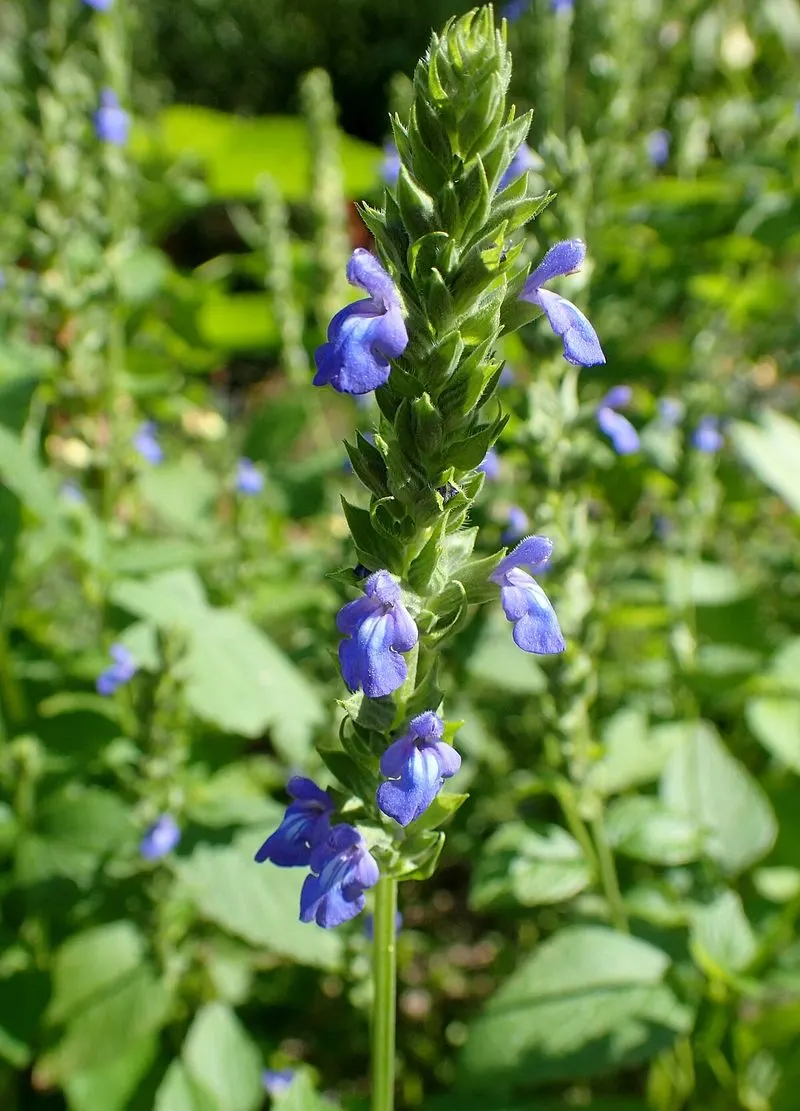
Chia plants might seem like an unexpected companion for squash, but their benefits are intriguing. As they grow, chia plants form a dense ground cover which helps retain soil moisture, crucial during the hot summer months.
Their presence can also deter certain pests that prefer bare soil, offering a natural form of pest control.
In addition to pest deterrence, chia plants attract pollinators with their tiny, vibrant flowers. This increases pollination chances for your squash.
Chia’s fast growth rate ensures they won’t overshadow your squash, making them a balanced companion in the garden.
Chocolate Mint
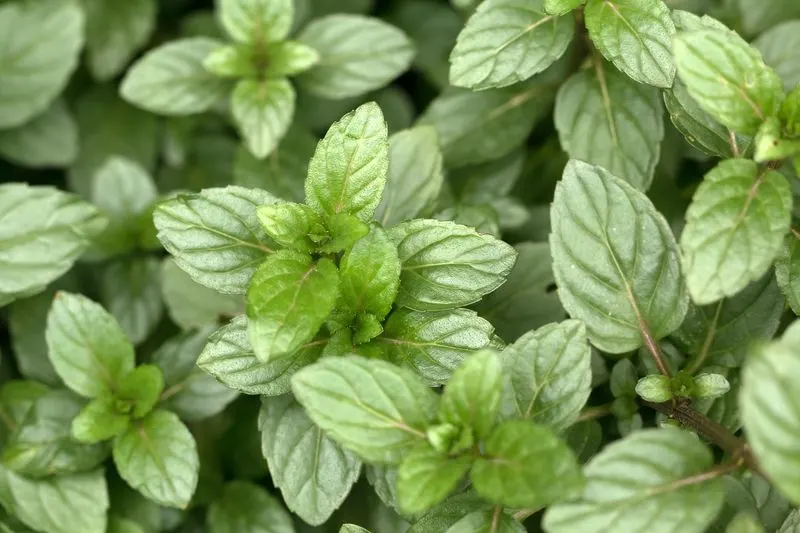
Chocolate Mint is more than a delightful herb; it’s a surprising yet beneficial companion for squash. Its aromatic leaves naturally repel pests that threaten squash, while its vigorous growth can outcompete weeds, providing a clean growing area.
Furthermore, the unique scent of chocolate mint can confuse pests that rely on olfactory cues to find plants. This adds an extra layer of protection for your squash.
When planted responsibly, chocolate mint ensures a healthy environment for squash without competing for nutrients, allowing both plants to thrive harmoniously.

